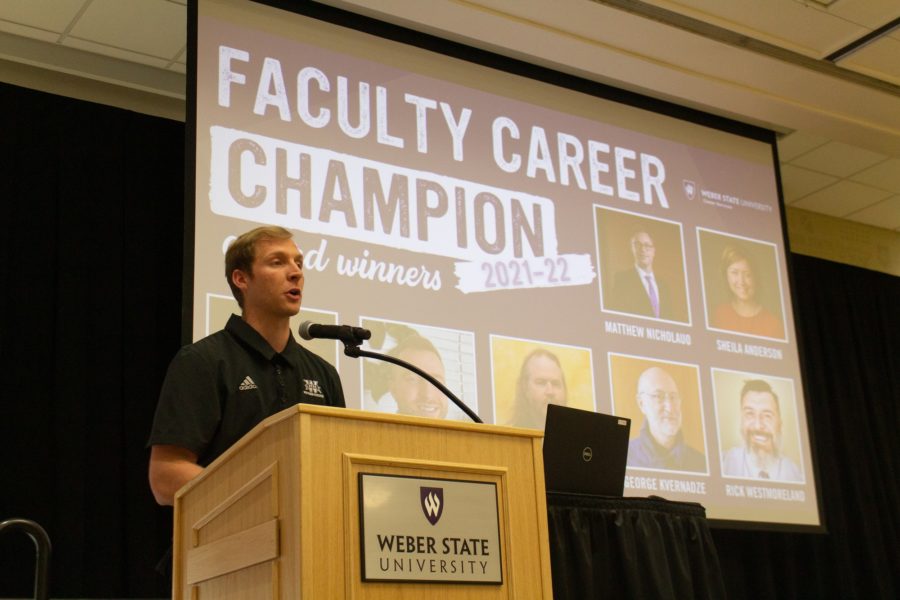By: Chanoknun Xayvong
In a sparsely populated classroom at the Weber State University West Center, Naomi Brower, an extension assistant professor, conducted a relationship workshop titled “How To Avoid Falling For a Jerk or Jerk-ette.”
Brower, who has been running this specific workshop since 2009, helped those in attendance learn how to not only find a suitable partner, but how to maintain a healthy relationship.
Although the event is usually attended mostly by women, Bower said both genders would benefit greatly from the skills she discussed.
“I went through a divorce, and I never want to go through that again,” Brower said. “I wanted to help people avoid these relationship problems.”
Brower illustrated an example of a jerk and a jerk-ette through a video clip from the movie Return to Me and asked participants to share their view of how marriage has changed in recent years.
“The purpose of marriage has changed over time,” Brower said. “I think we have had a shift in our values.”
Brower then taught those in attendance to use the Relationship Attachment Model to determine if they were with a suitable partner.
R.A.M. is a bar scale that uses the categories of know, trust, rely, commit and touch as the basis of most relationships. Brower taught about each topic and explained how they work together in the grand scheme of a relationship.
“I like this because it gives us a visual way to measure our relationship,” Brower said. “It takes talking, being together and time to make a healthy relationship”
Brower explained how having an unhealthy and unbalanced R.A.M. scale can lead to insecurities and gave examples of how these relationships could ultimately affect one’s life.
Brower then had volunteers stand up in front of the audience to map their R.A.M. and share their experiences about either current or old relationships.
Brower also explained how family plays a large role in shaping how individuals will handle and receive love. She then introduced a topic called “Five Areas to Get to Know.”
Brower used the acronym F.A.C.E.S. to help those in attendance learn the areas they need to explore with a potential partner before beginning a committed relationship. The areas included family backgrounds, attitudes and actions of conscience, compatibility, examples of other relationships, and skills of communications.
“I really liked all the information and the R.A.M. model,” said Michelle Waterby, a WSU senior. “She showed a good balance.”
Galyn R. Mook, coordinator of off-campus centers, said couples could benefit greatly from following Brower’s advice.
“I love the examples given and the R.A.M. poster,” Mook said. “If couples sat down and did that frequently, it would help show you where you are with your relationship.”




















